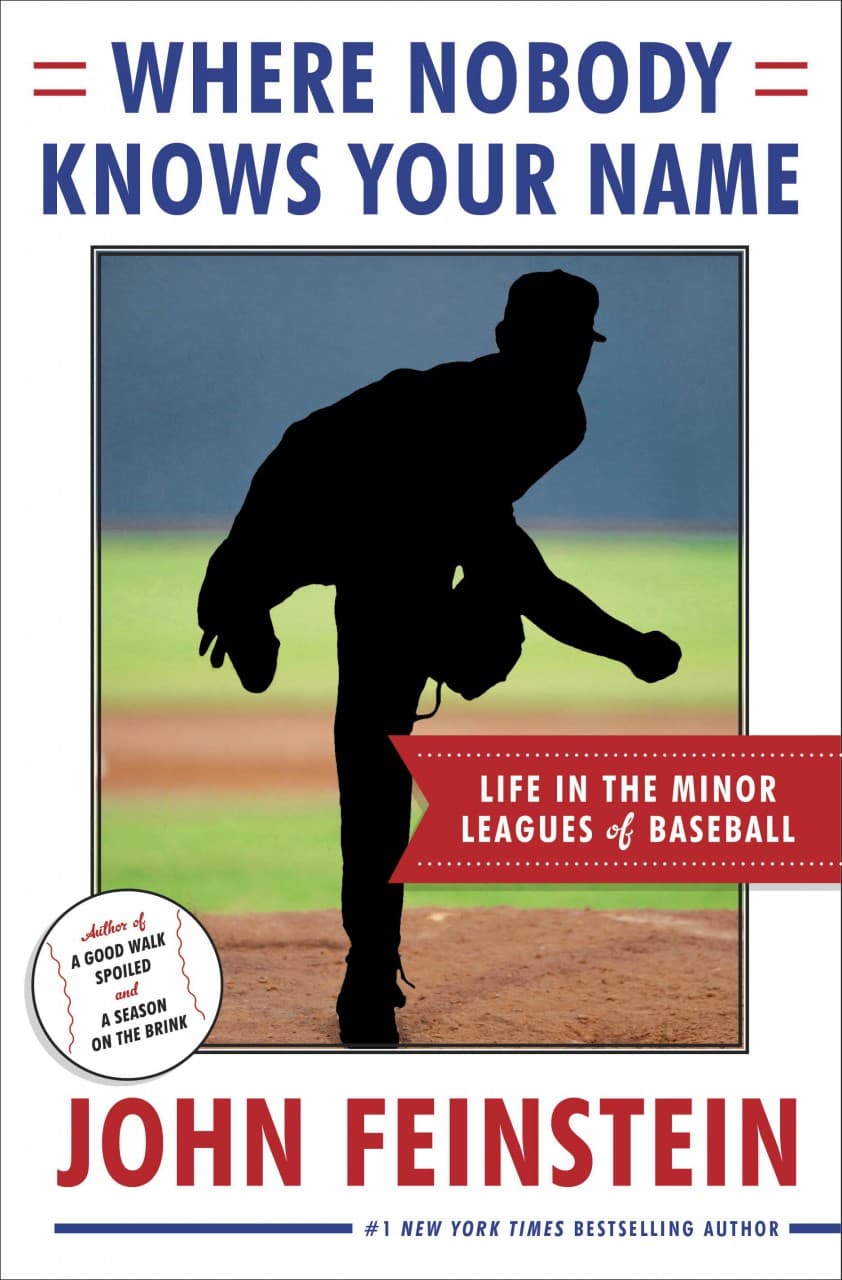Advertisement
John Feinstein's 'Where Nobody Knows Your Name' Chronicles Life in Triple-A
No one dreams of playing Triple-A baseball. They dream of playing in the Major Leagues. In Where Nobody Knows Your Name: Life in the Minor Leagues of Baseball, author John Feinstein shares nine unique experiences of life in the minor leagues from players, managers, umpires, and pitchers.
Highlights from Bill's conversation with John Feinstein
BL: Triple-A is the best there is below the Major Leagues, but the distance between the two can be substantial. You quote Jim Leyland, a very successful manager in the majors, who said, "fifteen minutes in the majors means you're a great baseball player." Is that the way the Triple-A players you met see it?
JF: Oh they do, because they know how hard it is to get to the major leagues. If you get to Triple-A, you're already among the elite baseball players in the world. There are ex-Major Leaguers in Triple-A lineups every single night. Six, eight, 10, 12 on the two teams on many, if not most, occasions. So these are guys that are that close, where they feel like they can reach out and touch the Major Leagues. And occasionally they do get to touch it, but they want to hold on to it. I guess the best description I heard of the difference is Brett Tomko — who pitched in the majors for years, won 100 games in the Major Leagues — said the food in Triple-A in the club house is essentially the same as the food in a big league club house, but it doesn't taste the same.

BL: Several of the players with whom you spent time characterized life in Triple-A as "real," whereas they said there is nothing "real" about life in the Major Leagues. What did they mean by this?
JF: Well I don't think very many people live a life where you only fly on charter airplanes. You only stay in the Four Seasons or the Ritz Carlton. You never pick up a bag — remember the minimum salary in the Major Leagues is $500,000 a year, most players are making a lot more than that. In the minor leagues there are very few players making $100,000 a year, those are guys who've been around for 10 years or more, most are making less than that. And I guess the best description of that comes from a guy Doug Bernier, college graduate who played professional baseball for 11 years, and had three days of Major League experience in that time. He got called up to Colorado in 2008 when he was making about $2,100 a month and he spent three days with the Rockies. For those three days, pro-rated, he was paid $7,200 and he said the big thrill was getting his next paycheck because it was the first time in his life that he had received a paycheck that has a comma in it.
BL: John, in many of your books, you express great respect for the people you write about, whether they are PGA golfers, college basketball players, football players at the service academies. Did you wind up feeling the same way about the men you met in Triple-A baseball?
JF: I did, Bill, and what was really interesting to me was before I really started on my journey I talked to a number of Major League people — Tony La Russa, I talked to a number of others — and they all kind of warned me. They said, you may find a lot of bitterness down there. I didn't encounter that much of it. There was some of it as you might expect, but for the most part what I found was hope. Because all these guys still have hope and belief or they would not be there. And they genuinely love to play baseball. The number of guys who said to me — people like Dontrelle Willis who was a rookie of the year; Miguel Tejada who was an MVP; I mentioned Brett Tomko — Nate McLouth who ended up being a success story — he went from released to Triple-A to the Major Leagues to two-year $11 million contract that he signed this winter with the Washington Nationals. They all said the same thing: I still get paid to come to the ballpark every night. And there was wonder in that. And I found that sentiment to be very endearing.
Advertisement
[sidebar title="An Excerpt From 'Where Nobody Knows Your Name'" align="right"] Read an excerpt from Where Nobody Knows Your Name by John Feinstein [/sidebar]Bill's Thoughts on Where Nobody Knows Your Name
The title of John Feinstein's new book is misleading. Some of the people he encountered in various Triple-A towns are pretty well-known, at least among baseball fans. Scott Elarton, who was trying to find his way back to the Majors when Feinstein spoke with him, had spent 10 years in the Big Leagues. One season he won 17 games for Houston. Wally Backman, managing a Triple-A club in the Mets organization, had been a significant part of the Mets team that won the World Series in 1986.
But known or not, all the subjects of Where Nobody Knows Your Name are laboring in the land of nightly promotions and daily dreams of a call from the parent club. Feinstein discovered that the men in the Triple-A clubhouses were, for the most part, happy to share their stories. Certainly some of them are bitter about being stuck one level below the Bigs, but lots of them are delighted to have found employment in a game, or at least that's what they told John Feinstein. His 24th book set in sports will delight readers looking for baseball stories to occupy them until Opening Day.
This segment aired on March 1, 2014.
